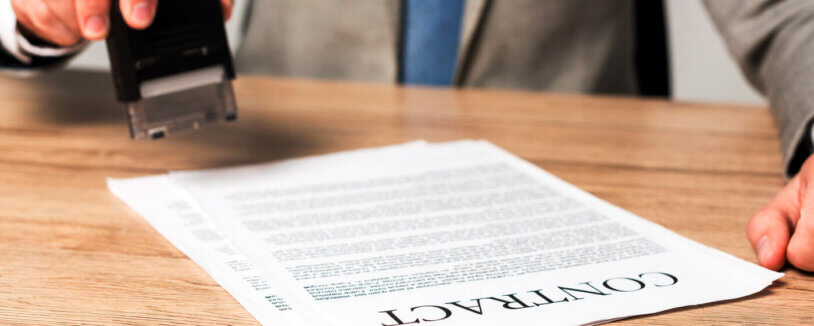Tip for article
Tip: Find out what happens with images from the internet – when can you use them and when do you violate the license? Find the answer in this video.
What is not a work of art?
- the subject of the work itself,
- the daily news,
- the process, the principle, the method,
- discovery, scientific theory,
- a mathematical formula, a statistical graph.
Tip for article
Hint: Copyright applies to the completed work as well as its phases and parts, including the title and the names of the characters.
What copyright is for
Once a work is created, copyright is created, including non-transferable personal and property rights that can be granted to another person through a copyright licence agreement.
Tip for article
Tip: We wrote about what to do if someone doesn’t respect your copyright in an earlier article.
What about copyright for employees and freelancers?
When it comes to the rights to use the work, it depends not only on the contractual arrangements, but also on the employment relationship that existed between the contractor and the client at the time the work was created. If the work is created by an employee, the employer automatically acquires the rights to use the work. A different situation arises if the work is created by a freelancer for his clients. The work becomes the intellectual property of the author, which itself cannot be sold or given away. However, it is possible to draw up a so-called licence agreement, which grants a licence to use the work.
Are you solving a similar problem?
Licensing agreement from experienced attorneys
We’ll help you set fair terms and conditions without ambiguity or kinks. Everything is simple, online, tailored to your needs and on predetermined terms.
I want to prepare a license agreement
- When you order, you know what you will get and how much it will cost.
- We handle everything online or in person at one of our 6 offices.
- We handle 8 out of 10 requests within 2 working days.
- We have specialists for every field of law.
List of property and personality rights
After the creation of a work, the author acquires rights which are regulated by the Copyright Act. They are divided into property rights and personality rights.
Property rights
Property rights in a work are mainly economic in nature. They confer on the author the exclusive right to decide on the further use of the work. If the author does not give permission to use the work, no other person may dispose of it in any way. However, the author may grant a licence to use the work. The property rights are valid for the duration of the author’s life and for 70 years after his death.
Interesting fact about property rights: for an audiovisual work, the duration of the property rights is calculated from the death of the last of the following persons: the director, the scriptwriter, the dialogue writer and the composer of the music.
The right to use the work includes:
- the right to reproduce the work (making copies),
- the right to disseminate the original or a copy of the work (for example, to distribute a created article or e-book over the internet),
- the right to rent the original or a reproduction of the work,
- the right to lend the original or a copy of the work,
- the right to communicate the work to the public (broadcasting the work by radio or television).
Personality rights
As the name suggests, personality rights are directly related to the personality of the author and are not transferable in any way to another person. These rights are valid only during the author’s lifetime and cease upon death. However, this does not mean that the work can be freely disposed of after the author’s death. This event has no effect on the protection of authorship itself, so that even after the death of the author, it is not possible to appropriate someone else’s work (the author’s name must always be given when redistributing the work) or to use it in a way that might diminish its value. The right to copyright protection can be claimed by a relative or other close person of the author, even when the author’s proprietary rights are no longer in force.
The author’s personality rights include:
- the right to decide on the publication of the work,
- the right to attribute authorship (this includes the right to decide on the attribution of authorship in the publication and subsequent use of the work),
- the right to inviolability of the work (the author has the right to decide on changes and interventions in the work, and the use of the work by another person must not in any way diminish the value of the work).
An example from copyright practice: You may have seen a dispute between the Prague Zoo and the painter Michal Cihlář, who sought to have his artwork removed from the zoo grounds. The artwork was not the work of Michal Cihlář, but it bore a striking resemblance to his original work for the zoo. The Prague City Court found in favour of Cihlář and the ZOO had to remove the works. The ZOO had wrongly negotiated a licensing agreement with Cihlář.
Copyright License Agreement
A licence agreement governs the rights to use a work that the author grants to another person through it. The copyright licensee may then dispose of the work in the same way as if he or she had the copyright. In order for the contract to fulfil its purpose, it must be drafted correctly. Although the law does not directly require a written contract (unless it is an exclusive licence), we recommend it in any case, given the potential complications arising from an oral agreement.
Exclusive vs. non-exclusive copyright licence
One of the things to address in the contract is the type of license granted. We distinguish between exclusive and non-exclusive licences. If the type of licence is not explicitly mentioned, a non-exclusive licence is automatically assumed.
An exclusive licence prohibits the author of the work from granting a licence to other persons and from using the work himself in the manner covered by the licence granted. A non-exclusive licence allows the author to continue to use the work and to grant a licence to others to use it.
In the case of a non-exclusive licence,the author may conclude alicence agreement for a single work repeatedly. If a non-exclusive licence is first granted to one licensee and then an exclusive licence is granted to another licensee, the original agreement will still be valid. Of course, only if the parties do not agree otherwise.
Even in the case of an exclusive licence, a further licence agreement may be concluded. However, the written consent of the exclusive licensee will be required. In the absence of such consent, the new licence agreement will be invalid.
Tip for article
A tip from lawyer Ondřej Preuss: “It is worthwhile for acquirers to negotiate an exclusive licence with the possibility of interference with the work. I also recommend extending the license beyond the Czech Republic.”
Copyright License Restrictions
A license agreement does not necessarily grant the right to use the work in its entirety. It is possible to limit the scope of the rights, not only in terms of the quantity of the rights, but also in terms of the place and time of use of the work. Unless the contract clearly addresses the ways in which the work may be used, a copyright licence is usually granted only for the Czech Republic and only for the period of time that is customary for the type of work in question. However, if you decide otherwise, it is possible to modify all these terms in the contract.
Termination of the copyright licence and withdrawal from the contract
A copyright licence agreement does not have to be terminated by the dissolution of the legal entity or by the death of the natural person who acted as the assignee in the relationship. Unless this is excluded in the contract, the rights and obligations under the licence agreement are transferred to the successor (in the case of a legal entity) or heir (in the case of a natural person). If it is excluded, the licence is extinguished.
In addition to the termination of the licence, there may be a withdrawal from the contract by the author. This may happen in the following cases:
- Due to the inaction of the assignee – the assignee has an exclusive licence but does not use it, thereby harming the author. The latter must notify the assignee and invite him to use the licence before withdrawing from the contract. However, this can be contractually excluded.
- To change beliefs – if the author has changed his views and the unpublished work no longer corresponds to his beliefs, he can withdraw from the contract. He will, however, be obliged to compensate the acquirer for the damage caused by his actions.
Publisher’s licence agreement
One sub-category of the standard licence agreement is the publishing agreement. Through it, the author authorises the purchaser to reproduce and distribute the work. The work may be verbal, musical, artistic or photographic. In this case, unless otherwise agreed in the contract, an exclusive licence is automatically granted. However, the author retains the right to so-called author’s proofreading before the publication of the work, i.e. the possibility to make minor changes to the work.
Sub-licensing agreement
Another term we encounter in connection with the granting of a licence to use a work is the sub-licence agreement. It is created as an addition to the concluded licence agreement and authorises the licensee to grant the acquired rights to a third party. However, this can only be done with the written consent of the author, which must be addressed in the licence agreement.
Copyright license fees
The licensee is obliged to pay to the author the so-called royalties agreed in the contract. These can take several forms:
- A one-off fee – the simplest but not very common method of payment for the licensee, which is mainly used for licenses whose subject matter is of minor value and at the same time the time of granting the license does not play a significant role.
- Instalment fee – during the term of the contract, the licensee pays periodically the agreed parts of the total fee.
- A fee derived from the use of the licence – this may be a percentage of the value (e.g. for book sales).
Interesting fact: The real specialty in copyright law is computer programs and software. With few exceptions, even these are considered works of authorship and are subject to property and personality rights. However, they have a number of specificities, including the often-occurring co-authorship and the need to address support or protection of personal data. Unlike ordinary works of authorship, however, they do not have to be outright original.
Recommendations at the end for a copyright licence agreement
- If you intend to enter into a licensing agreement, be careful about whether it is exclusive or non-exclusive.
- Pay attention to whether it is for a fixed or indefinite term.
- Be clear about termination options, the scope of the assignee’s rights and how remuneration will be negotiated.
- Avoid model licence agreements downloaded from the internet, which may not reliably protect your rights, whether you are the author or the assignee.
A tailor-made copyright licence agreement is the best step to take in this case – every work is specific in some way and you need to translate the specific situation into a contract to avoid any unpleasantness, whether we are talking about penalties or lost profits. Avoid copyright disputes. We can prepare a licensing agreement in as little as 48 hours, and your package includes a one-hour consultation to resolve any issues.





